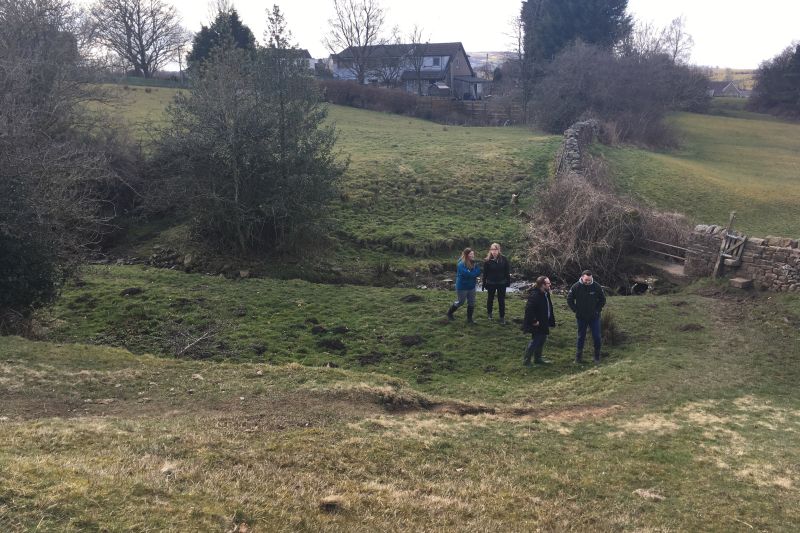
A pilot project has begun on a farm located on the border of Yorkshire and Lancashire to help reduce the risk of flooding and create a better habitat for wildlife.
Daniel Procter, together with his wife Heather and parents Howard and Lynda, own Marlfield Farm, a small sheep farm near Earby.
The family have witnessed first-hand how quickly the River Aire reacts to flash flooding.
It is hoped measures included in the natural flood management trial will help reduce flood risk.
Proposals include hedge planting and fencing off corners of fields from grazing so that more vegetation can grow.
The project will also create leaky barriers to slow the flow of rainwater and test how natural solutions such as creating wetlands can be used to help reduce the risk of flooding.
The Environment Agency is working with the River Stewardship Company to deliver this work by Christmas, and they are keen to work with more landowners in the area.
The work is part of a wider flood risk programme which has been funded by Leeds City Council to work with nature to reduce flow of water from upstream so the landscape can hold more water in times of flood.
This is the first time that natural processes have been used to reduce flood risk in this way and over such a large area.
The wider Leeds NFM programme includes tree and hedge planting, re-channelling rivers to their natural courses, soil aeration, wetland creation and moorland restoration.
Chris Milburn, Project Executive at the EA said: “We are very grateful to the landowners, the Procters, for working with us to trial these NFM techniques on their land.
“It will contribute to local flood risk reduction and provide wider environmental benefits, slowing the flow of water locally and to downstream communities including Leeds.”
While the natural techniques will not prevent flooding from affecting Earby again, it is hoped more landowners will come forward to help trial new measures to further benefit the area.
